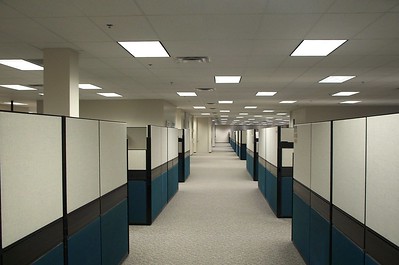One-third of US workers under the age of 40 considered changing careers during the pandemic. The figures come from a Washington Post- Schar School poll conducted in July. The poll also revealed that 1 in 5 workers (regardless of age) thought about exercising a new career option
The numbers could have huge implications for community colleges, if they can tap into that sentiment. US workers have used the pandemic as an opportunity to rethink their career paths. That includes both workers who lost their jobs because of COVID-19, as well as those who have burned out in their current positions.
Workers between the ages of 18-39 were most likely to admit that they’d considered changing careers. 21% of mid-career workers (between the ages of 40-49) said they’d given serious though to finding a new line of work. About 13% of workers over the age of 50 were unhappy enough in their current career path to consider a switch.
That this is happening during the pandemic is not a coincidence. Many respondents said that the pandemic had made them rethink what they considered to be important in life. That reflection included re-evaluating their career choices. It’s also translating into action. As workers prepare to return to the office, employers find themselves coping with a record number of resignations and retirements.
Changing careers, changing locations
Changing careers isn’t the only move these unhappy workers are considering. More than one-fourth of those surveyed said that they’re considering relocating and 17% said that they’ve already moved. 41% of workers between the ages of 18-39 have seriously considered relocation. Once again, the effect of the pandemic is on full display.
With many companies still conducting business operations remotely, workers no longer feel closely tied to their employer’s location. According to a recent Owl Labs study, one in six companies worldwide are fully remote. Upwork estimates that about one in four American workers will be fully remote by 2025.
The growing consensus is that remote work will likely remain as a permanent facet of the American workplace long after the pandemic has subsided. That’s being driven, in part, by employee preferences. Nearly 6 in 10 workers say that a company’s remote work policy is a deciding factor for new jobs.
This is all good news for community colleges with classrooms to fill. Promoting career options that lead to meaningful work may tap into an increasingly frustrated workforce. It also comes at a great time – when fewer high school graduates are enrolling in college courses immediately after graduation.
Now is the time to tailor programs to attract career-changers and those rejoining the workforce after being idle. Would-be career changers may soon make up the largest cohort of students on campus.
WCC Trustees need to think about that carefully before approving non-mission-related revenue generation schemes. There’s a lot of opportunity for training and retraining among members of the current workforce. Increasing enrollment may be more a matter of connecting with early-career and mid-career professionals who are looking for something different.
Photo Credit: Billy Bob Bain , via Flickr


























